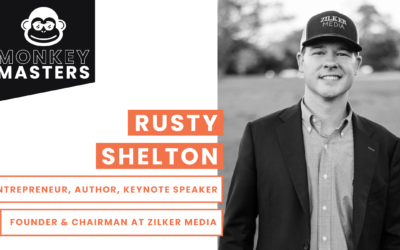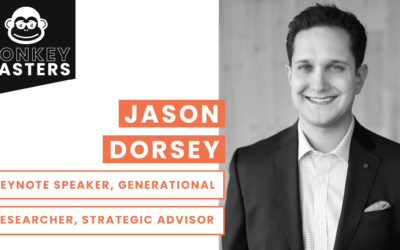Part 2:
My proven 6-step approach to forging the right career path makes none other than YOU into your own personal mentor with the wisdom of a business tycoon and the investment of a close relative.
In my last post I covered the first three steps in my GRAMPS method, which is a proven tool for changing your life direction in a meaningful way. Step 1 or “G” was Gratitude, Step 2 or “R” was Renewal, and Step 3 or “A” was Autonomy.
Hopefully you’ve had some time to reflect on the kind of presence those key components have played in your career till now – and project what it might mean to have those elements play a central role in every decision you make about roles going forward. Today we’ll move decode the rest of my quaint acronym. Though don’t be fooled, this GRAMPS will whip your ass into shape.
M is for Mastery.
What are you really, really good at professionally? And what skill set have you failed to achieve, despite tons of coaching and feedback that you should “really work on xx”? We all have strengths and weaknesses, and we have to be really careful not to confuse what we like to do and what we are good at – they can (and usually are) very different.
Countless studies have shown that it is easier to emphasize and utilize the strengths we have versus building new skills that we don’t have – and now is the time to focus on the skills you have.
Once you have a clear picture here, you can start to think about roles, organizations and opportunities that need your skill set and where you can shine – because displaying mastery will likely do more for job satisfaction that just about any other attribute. (As a side note, go back to the Gratitude section and notice if mastery wasn’t one of the top 5 things you enjoyed about previous experiences.)
P is for Purpose.
This one is really simple, but with simplicity comes the challenge. I think of purpose as the way in which my work contributes to something bigger than myself. The key word in my definition is “contributes,” and I recommend you think long and hard about what contribution means to you. It can mean very different things to different people.
I have found team members who got energy from hitting a revenue growth target, while others loved the company’s focus on giving back to the community. THERE IS NO RIGHT ANSWER, and you shouldn’t be embarrassed by whatever your answer is. The point is to determine where you get this feeling of contribution.
Now you’re armed and ready to go, so to speak.
If you have made it this far, you have a sense of what made you happy at past jobs, and you’re starting to feel your battery recharging. You’ve also reflected on what form of responsibility you want (autonomy), and this will help you sort through a wide range of roles and reporting structures. You have a good sense of where you draw that “I kick ass” feeling when you do a job with a high degree of mastery. And you have reflected on where you get that special feeling of being part of something bigger than yourself.
In short, you now know thyself and – get ready – your final step is to honor Mr. Shakespeare by being true. That is where the final letter comes in….
S is for Selection.
Take the time – BEFORE YOU TALK TO ANY RECRUITERS – and use the reflection you just undertook to WRITE DOWN exactly what you want in your next job. Be very clear and specific about what role you want, the type of culture you will work in and the type of responsibility that is most important to you. Being specific here will pay dividends in more ways than you can possibly imagine. After you go through this exercise, expect to feel so much clarity that your energy and motivation to find your dream job will be at all-time high.
It’s quite possible that this will be the first time in your life that you are actually driving this process versus the other way around.
You will walk into interviews with a newfound confidence and a degree of specification that others will notice. As a CEO, I can tell you how rare it is to find an executive with this type of clarity.
And when I did come across this select few I did one of three things, all of which benefited the executive I was interviewing:
- I didn’t waste time if I did have a job that met their requirements, which is also a time-saver for you.
- If I did have a job that fit the requirements, I knew I was dealing with a serious candidate and often went from “interview” to “sell” mode immediately in the interview, which also translates to an increased likelihood of success for you.
- I tried to help the executive find what they were looking for, even if it was outside my company, which means free networking for you.

In the same way your imaginary wise and benevolent GRAMPS might have done, the GRAMPS approach does more than just help you get the job you’re interviewing for. GRAMPS steers you toward your dream methodically not only by encouraging self-reflection and focus, but also by forcing you to take stock of the big stuff like self-sufficiency and purpose. Which ultimately means, of course, that you go way beyond being the apple of old GRAMPS’ eye – and you find way to personal greatness.




